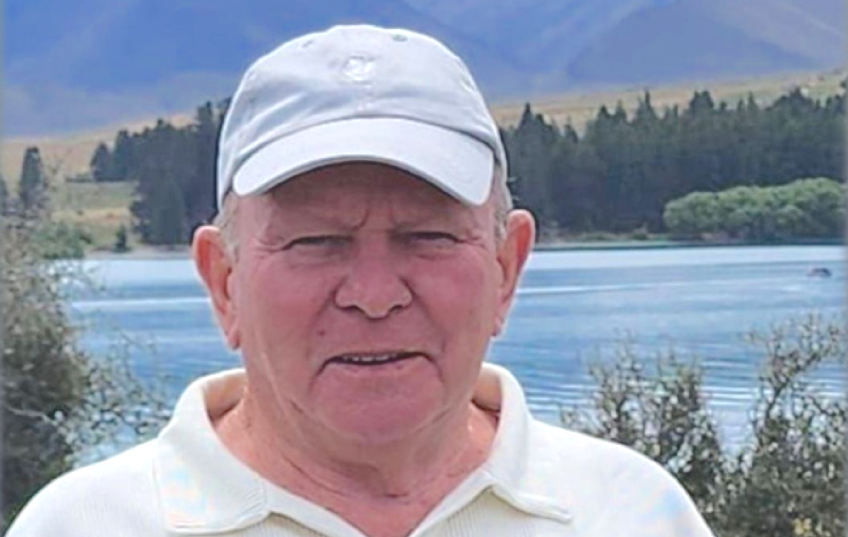Mark Quinn : How CODC can reduce rates


By Zizi Sparks
Mark Quinn can imagine a world where Central Otago District residents don’t have to pay rates. To get there would take council investment in enterprises to save and then earn the council money, he says. And he has some ideas.
Quinn is one of three people vying to be the Central Otago District mayor and is also standing to be a councillor in the Teviot Valley Ward.
His background is as a business analyst, but he now owns an almond orchard in Roxburgh.
Quinn believes the biggest issue facing the district is “reckless spending” driving the district into debt.
If elected, Quinn’s top priorities are a full forensic audit, a council restructure and to control the expenses. He says he wants to know why the council’s debt has increased rapidly in recent years and has an auditor and two chartered accountants “on standby” for this audit.
“I want to expose where we are wasting money and blowouts ... Blowouts is one thing, borrowing money is another, expenditure is another,” he says.
“We have to go back to the basics and start rebuilding the council from scratch.”
Quinn says he has some “wise owls” in his back pocket - the previously mentioned auditor and chartered accountants, as well as three entrepreneurs and a lawyer – but he won’t name names.
“They're going to be able to sit down with me and steer me in the right direction or look at things and give advice so that we get a clear indication of whether we're going in the right direction or whether we need to change what we're doing in some way, shape or form.”
Quinn says the council needs to find alternative revenue streams to help reduce rates – and he has a few ideas.
“Our biggest costs are the ones we need to look at, so roading.”
He suggests the council could invest in machinery to repair and replace roads saving money on private contractors and earning money by renting the machinery to neighbouring councils.
He also suggests looking at if the district could be home to a recycling facility servicing neighbouring districts.
“We recycle it, we get fuel, we get plastic, we get cardboard, we get waste, compost and so on and so forth. We can make money out of it by bringing everyone else's here.”
He says it could create “colossal” income.
Quinn says this idea of bringing industries in to subsidise rates, could see people label him a “cowboy”.
To that he says: “No, this is the business world, this is not Piccadilly Circus. Having that vision to build things ... That takes an entrepreneur.
“At the end of the day, for me, I look at the council and go, how can we stop paying rates? It's not how do we limit it, it's not how do we reduce it, it's not how do we accrue debt, it's how do we stop paying rates? Because, fundamentally, that is what the problem is here.”
He says some of these ideas could get off the ground quickly, but of course he would need councillors and staff on side.
At the council table, the mayor is only one vote so how does Quinn propose to get the support to get things across the line?
“I will have five people, that’s all I need, on my side so we can hold the majority. I appreciate I’m going to be ridiculed by people that see me as a threat and I don’t have a problem with that.
"People don't like change, they'll argue with you black and blue and that's what's going to happen here.”
He is outspoken about the Southern Water Done Well proposal which saw Central Otago, Clutha and Gore district councils agree to present a joint council-controlled organisation in their Water Services Delivery Plans, due to be presented to the Government by September 3.
The councils will be shareholders and have a say in how services are delivered.
He believes the council didn’t listen to feedback during consultation.
"While 57.4 per cent of the population said we want to keep our water in house, these councils turned around and said, we're not listening, we're going to adopt the CCO."
During consultation across the three district councils involved, 57.5 per cent of submitters preferred water assets remain in-house. However, looking at feedback specifically from the 303 CODC respondents, 47.5 per cent supported the joint CCO.
Affordable housing is also a hot topic. Does the council have a role to play?
Quinn believes the council is “so overstaffed that the elephants slow down to a slow crawl” resulting in slow moving cogs when it comes to consenting. Faster processing could help.
Engagement in local councils is low – voter turnout in the district was 46.85 per cent at the last local election. So how would Quinn make sure the population has a say? An open door is paramount, he says.
“While we might know a lot, we don’t know everything. So the people have to be able to speak.”
Touching on tension between Alexandra as the council base and other communities like Cromwell, Quinn doesn’t believe multiple council buildings are needed for a population the size it is.
He also believes any value actualised from land historically endowed to certain areas needs to remain in those communities.
“So there's lots of little issues in there that put a wedge in between them, and some of those can be easily rectified and some can't. It's just going to take a wise head or a wise group of people to actually be able to do that.”
He believes more should be done with Cromwell Cemetery to reflect community pride in assets.
While the proposed fast-tracking of the Bendigo Mine is not really in council control, Quinn says “if they can’t pass it back the way it was before they started, then they shouldn’t be allowed to have it”.
Quinn is also the founder of Challenging Councils New Zealand, which hosts public meetings nationwide in efforts to shine a spotlight on councils’ debts.
“I've been exposing that. I have quite a large following around New Zealand and now it's time to get into my own area and sort that out.”
He says Challenging Councils has inspired people to stand for their local councils to affect change.
“New Zealanders are waking up, and that's really good. They're getting off the couch. That's even better.”
If elected, in his first few months in office Quinn says he would learn about the council’s direction and put mechanisms for change in place.
“Restructure mechanisms can be in place, expenditure mechanisms can be in place. So there's a lot of work that can go through. But it's only going to happen if you get five people that are for the people,” he says.
“There are things that in the first 100 days we could probably look at. Curtailing over $1 million worth of expenses is one avenue and in doing so, that means that rates are reduced by $60 per ratepayer.”
I ask if Quinn’s already done the math on that $60 figure.
“Correct. I’ve done a lot of math on a lot of things. When you’ve got 40 years as a business analyst you look at it in a different light,” he says.
Ultimately, Quinn is motivated by the next generation.
“If I don’t do this, my grandkids will never own a house because rates are going to be far higher than the mortgage,” he says.
“I have to get in and fight for the people and make sure that the facts are presented and that people get a clear idea of where they're going or what's happening. And at the bottom line is, we have to do this for our grandchildren.”

























